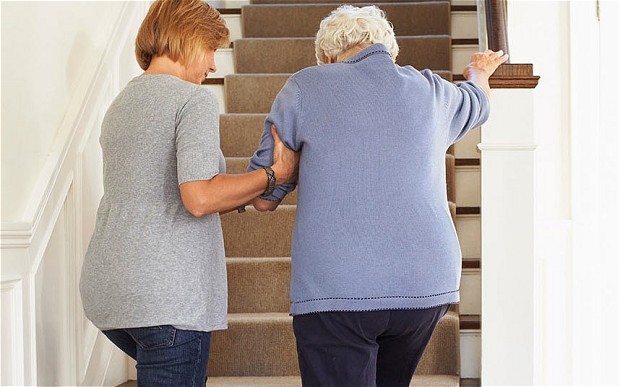Rising Rates of Seniors Falling and What You Can Do About It
The Centers for Disease Control and Prevention (CDC) released a report this month showing that seniors are experiencing concussions and other brain injuries at unprecedented rates, leading to increased emergency room visits, hospitalizations and deaths.
Older people typically experience falls at a significantly higher rate than do younger people for numerous reasons, but the CDC report found the rise to be alarming. The reports authors were unable to attribute the increase to any one factor, but surmised that because a growing number of older Americans are living at home alone, they are falling more often.
“Many older adults are afraid their independence will be taken away if they admit to falling, and so they minimize it,” Dr. Lauren Southerland, an Ohio State University emergency physician who specializes in geriatric care, told the Associated Press.
Because older people are more likely to have impaired vision, dizziness, and other such health issues, as well as a lack of the strength and agility to find their feet once they lose their balance, they not only fall more often than younger people, but one fall leads to a cascading effect of more falls with more injuries. In a study published last year, Southerland and other Ohio State researchers found that more than a third of older adults with minor head injuries end up back in the ER within 90 days.
The report said that one in every 45 Americans 75 and older suffered brain injuries as a result of a fall, a 76% spike from 2007. By comparison, the same increase in brain injuries for people of all ages rose a still-significant 39%. (The CDC attributes the rise among younger people to better reporting of sports injuries, as well as an increase in suicide attempts, mainly gunshot wounds to the head.)
So what can you do? Your concierge physicians at MD 2.0 in Jupiter, Florida, recommend the following steps.
1. Perform strength and balance exercises to improve your muscle tone and increase your balance. Tai Chi, a gentle routine of slow-motion exercises, has been shown repeatedly to not only increase balance, but to decrease dizziness, a common cause of falls.
2. Survey your home for tripping triggers and unsafe areas. Add light throughout the home to aid in visual perception, install handrails on both sides of staircases, and add grab bars inside and outside your tub or shower.
3. Have your eyes checked at least once a year, and update your glasses to ensure optimal vision.
4. Talk to us! We can evaluate your risk for falls, and review all your medications—including over-the-counter drugs—to see whether any might contribute to your risk for falling.

